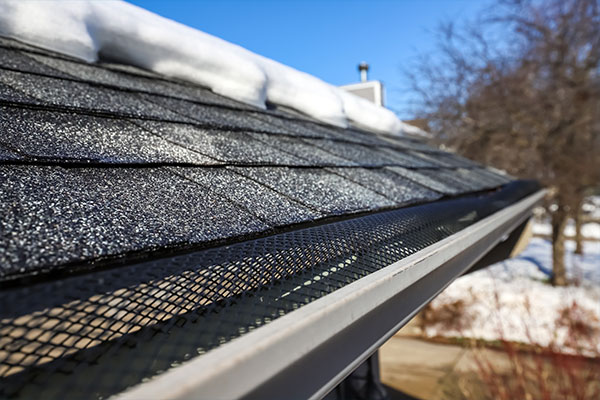What Do Roofing and Waterproofing Look Like in Different Climates?
Author: Dan Stout | March 11, 2024
When it comes to proper roofing and weatherproofing, it seems like there should be a simple solution: Just make sure the roof sheds water, and you'll be fine, right?
Unfortunately, ensuring a roof is weatherproof is more complex than that. Roofers need to adapt materials and installation techniques to accommodate the challenges posed by a wide variety of local climates, from Florida rain and heat to Minnesota snowstorms.

Here's a quick roundup of some of the most common challenging climate conditions roofers encounter, along with ways to meet those conditions.
High Heat Challenges
High heat climates stress roofs in multiple ways. The unforgiving UV rays of the sun can cause premature failure of materials, while high temperatures can weaken adhesives and bonding agents. Not to mention the strain high temperatures can put on energy budgets.
High Heat Solutions
- Lighter-colored materials can be as much as 50°F cooler than a dark roof. This reduces the temperature differential between the outer and inner layers of the roof, making buckling less likely.
- Liquid waterproofing membranes will struggle to cure if applied to a surface that's too hot. Read installation instructions carefully, and work east to west across the roof to stay ahead of the sun.
- Choose materials that can expand and contract with temperature swings.
- Look for "UV stable" or "UV resistant" materials, such as H.E.R. Fabric-Less Flashing Grade Polyurethane Roof Sealant, for the best protection against sun damage.
Cold Weather Challenges
Cold climates hold moisture in the air, where it's slow to evaporate. These environments require moisture resistance as well as insulation and the ability to prevent ice dams. Flat roofs in particular will experience heavy loads in high-snowfall areas, leading to potential collapse. If property owners plan to climb the roof to remove snow, it requires a roof built to withstand foot traffic and snow shovels.
Cold Weather Solutions
- A sloped metal roof can shed snow buildup, preventing snow melt from ponding.
- In cold weather applications, water-based waterproofing membranes can struggle to cure properly. Urethane or silicone products will go on easier, and at lower temperatures, than their water-based counterparts. For example, rooftop masonry can be treated by Protectosil CHEM-TRETE BSM 400 in temperatures as low as 20°F.
Humid Weather Challenges
In perpetually wet or damp conditions, applying roll-on coatings (especially water-based products) can be a challenge. They struggle to adhere to damp materials properly, and if they do go down, the underlying materials may dry out very slowly, resulting in the condition commonly called "dry rot."
Even after a waterproof coating is applied, standing water can pose a threat, as acrylic coatings can weaken with extended exposure to water.
Humid Weather Solutions
- Consider a silicone or urethane coating or sheet membrane. Note that silicone is very slippery when wet, so foot traffic can be a hazard in humid conditions.
- Many roofs are better off with a waterproof barrier that can "breathe" a little easier. Products such as HydroStop are designed to allow any water vapor to evaporate, avoiding long-term damage from trapped moisture.
Extreme Weather Challenges
Most roofs can stand up to typical rainstorms, but rain driven by the high winds of tornadoes or hurricanes can penetrate areas that regular rainfall would never touch.
Extreme Weather Solutions
- Select materials rated for impact resistance and high wind conditions. Be sure to compare what wind resistance is covered by the warranty.
- Look for materials like VersiWeld TPO, which have specifically been tested with simulated exposure to severe climates.
There are as many different tactics to roofing and waterproofing as there are ranges in climate. If you're not sure about the best choice for your project, reach out to the pros at your local Beacon supply store.